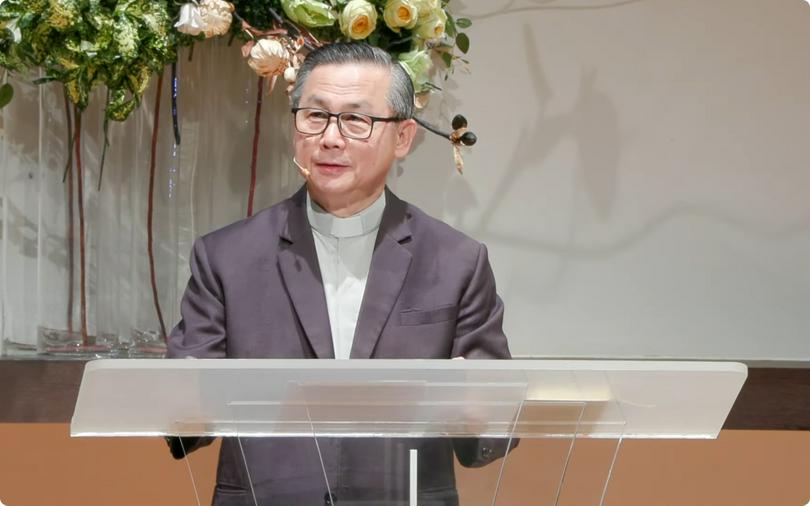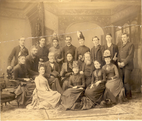Rev. Dr. Caleb Soo Lee Chong, associate minister and training pastor of Singapore Life Church, recently delivered a seminar titled "Church Breakthrough to Reach New Heights."
Church buildings may need to be renovated or even reconstructed. However, more importantly, churches must constantly pursue breakthroughs so that we can effectively minister to people in today's era. Yet, breakthroughs are not meant to blindly follow the trends of the times or merely marketing. Otherwise, the church will degenerate into a consumerist model or a "chameleon" church that changes with its environment.
First, he pointed out that the church must lead believers to break through the rational framework of faith.
The reason the early church grew rapidly was that it was not preaching an empty ideology, but that they had powerfully lived out what they believed. When the church conceptualizes, rationalizes, and objectifies the Christian faith, it cannot possibly satisfy the spiritual hunger of modern people. If faith is reduced to religious concepts and ideas heard from Sunday sermons, people will feel that such faith is irrelevant to their lives.
The Chinese view of truth is existential in that the ultimate concern is how to attain a fulfilled life. For the Chinese, the "Tao" (way) is not something rational and objective that can be grasped. Hence, Chinese people generally do not understand the truth through abstract concepts, but through their inner nature and lived experience. The highest form of the truth is rooted in human nature.
The Doctrine of the Mean describes the understanding of the Tao through "sincerity": "Sincerity is the way of Heaven; pursuing sincerity is the way of man." In other words, the Chinese view of the truth is realized through an actual experience. No wonder Paul Ricoeur once said that the starting point of Asian thought is to live through experience.
Clearly, for the church, the key task is to embody the truth in personal lives and communal church life. The most effective evangelism does not rely on techniques or strategies, but on the preacher's personal charisma and an incarnational lifestyle.
He emphasized the importance of experience can be seen in the growth of the Charismatic Movement. One reason it has expanded so rapidly is that it successfully "crystallized" and "concretized" the Christian faith. Rev. Dr. Soo shared an experience from many years ago when he visited a charismatic church. Because there were many people and cars, parking was a big problem, but the church had organized many volunteers to help with parking. That left a lasting impression on him.
Christians need to experience God's mercy, holiness, and justice through the work of the Holy Spirit so that their lives can grow and express faith in a concrete way. Only through such breakthroughs can Christians generate positive influence on those around them, especially their families and the next generation.
Secondly, he called on the church to shift from a care-oriented model to a participation or service-oriented model.
The church must help believers in tangible ways to solve their real-life problems, not merely preach doctrines from the pulpit. It must help believers break through the rational framework of faith so that they can truly live it out, enabling others to perceive that "faith is really good."
An infant constantly needs care and lacks patience, crying at the slightest discomfort. Likewise, spiritual infants need continual nurturing. To grow into Christlikeness, Christians must persistently learn, wait patiently, and experience God, and there are no shortcuts. Christians should use the gifts and talents God has given them, along with a mature spiritual life, to break past old limitations and step out of the church to serve the world, witnessing to Christ in the workplace and living out Christian values. This is not a church-centered view, but a Christ-centered view, that is, following Christ into the world and leading the world back to God's original intent in creation.
During the pandemic, many churches engaged in poverty alleviation ministries. In addition to these constant efforts, the church should encourage believers to be salt and light in their families, workplaces, and communities by helping those in need and bringing the love received from God to others so they may encounter God. Every believer becomes a moving temple of the Holy Spirit.
Today's church should not only send missionaries abroad but also commission every believer to serve people. Christians must follow the model of the incarnation and enter various fields as light and salt, including families, workplaces, business sectors, healthcare, arts and culture, and technology etc.
He cited examples: Daniel bore witness to his faith in a pagan regime; Obadiah protected one hundred prophets of the Lord from being killed by Queen Jezebel at great personal risk within King Ahab's palace, bearing witness as salt; Elijah, outside the palace, challenged the prophets of Baal and sparked spiritual revival among the Israelites.
Therefore, the love and justice promoted in the Bible can lead to harmony in family relationships. In society, practicing love and justice can reduce racial tensions and narrow the wealth gap, making it more stable and peaceful.
Second, Christians may show respect, kindness, and care for others. Employers should provide good working environments and treat employees fairly; employees should be loyal and diligent, and pray regularly for their employers. Teachers should care for students, and students should respect their teachers. Parents and children should support one another, and husbands and wives should bless each other.
Third, it is advisable to take practical action. For instance, donating a tenth of one's income, including salary, interest, investment profits, or other earnings, for charitable purposes. Set aside time for social care activities such as visiting seriously ill patients, caring for the elderly who live alone, or supporting impoverished villages, and so on.
Originally published by the Christian Times
- Translated by Charlie Li












